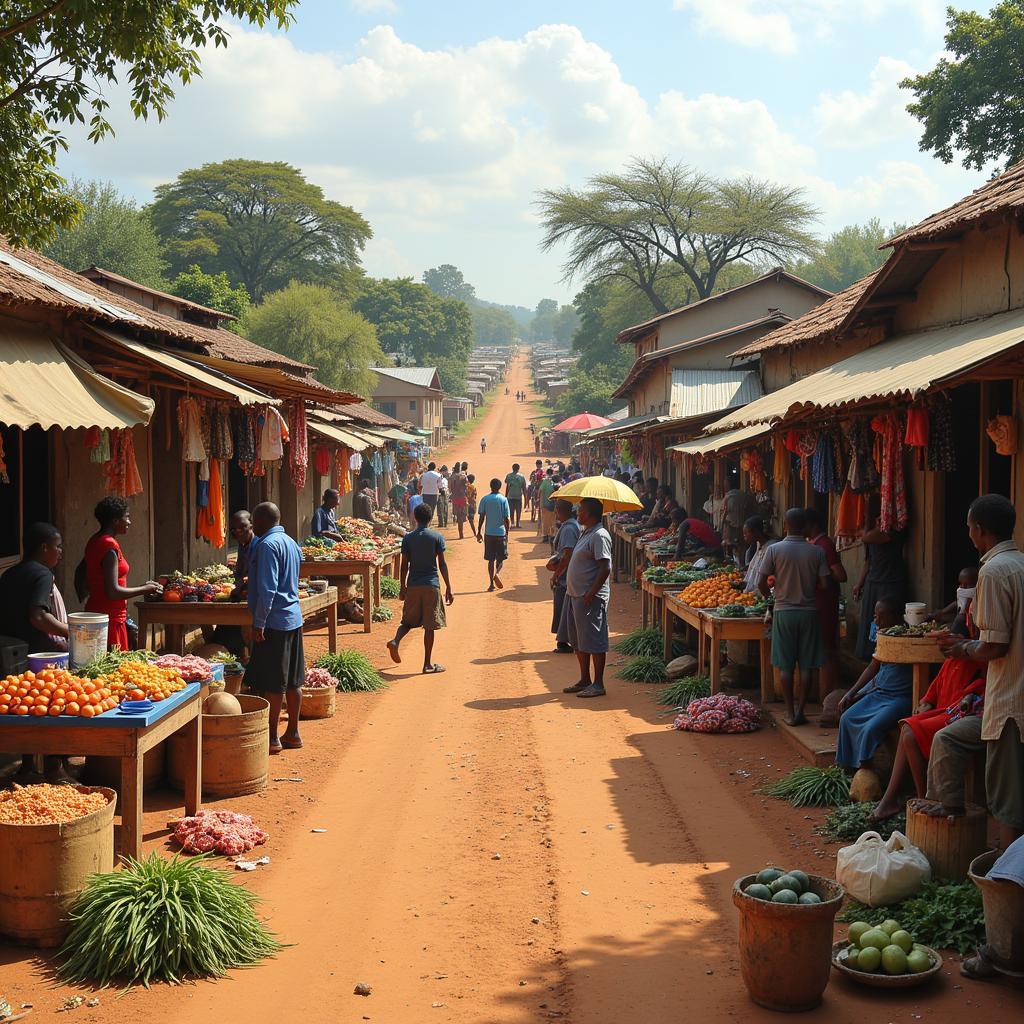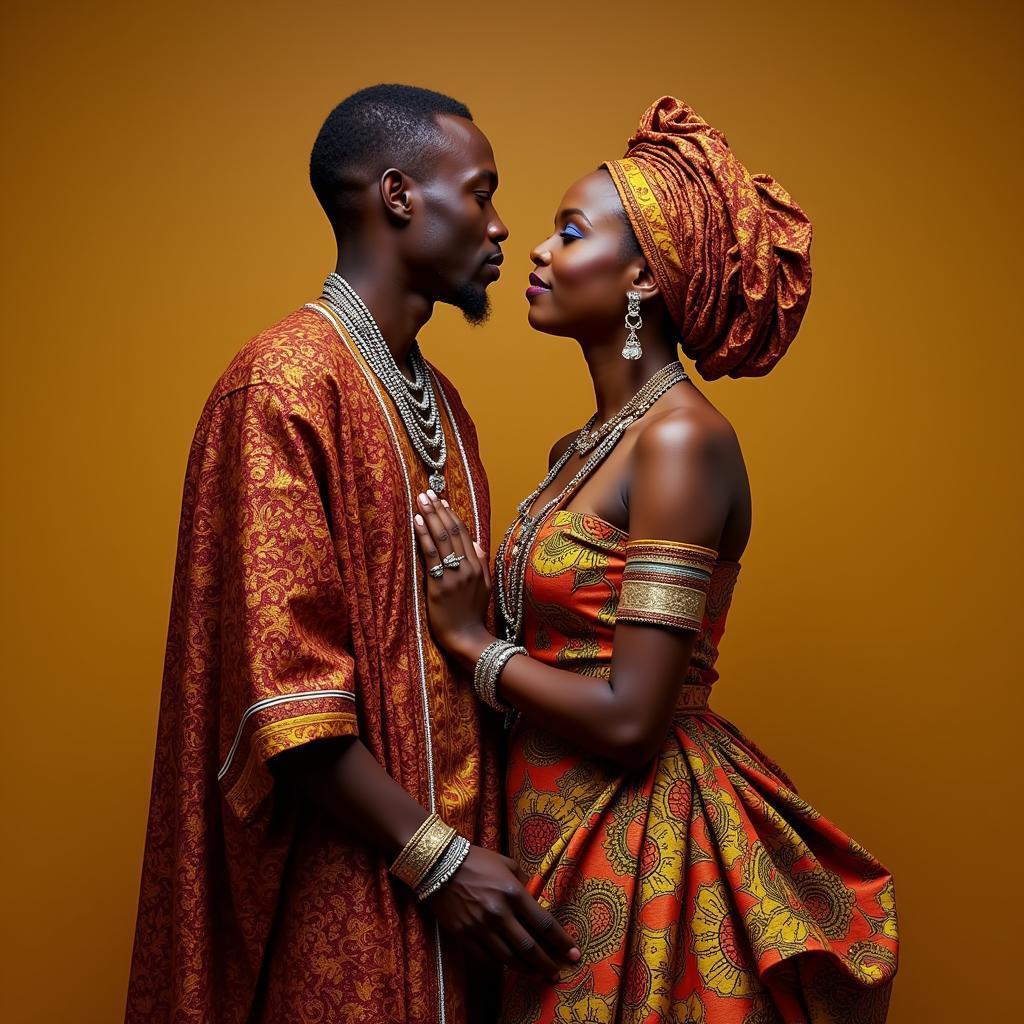Unveiling the Spirit of Sierra Leone: An African Country Rich in Culture and History
Sierra Leone, a small nation nestled on the west coast of the African continent, holds a captivating history and a vibrant culture that often surprises and delights those who discover it. From its stunning beaches to its lush rainforests and lively cities, Sierra Leone offers a unique tapestry of experiences for travelers and culture enthusiasts alike.
This West African gem is perhaps best known for its tragic but resilient history. The name Sierra Leone, meaning “Lion Mountains” in Portuguese, speaks to the country’s untamed beauty and the indomitable spirit of its people.
A Journey Through Time: Exploring Sierra Leone’s Past
Sierra Leone’s history is a complex and compelling tale, marked by both sorrow and hope. The country played a pivotal role in the transatlantic slave trade, serving as a major departure point for enslaved Africans bound for the Americas. The legacy of this dark period is deeply etched in the nation’s narrative, but it is only one chapter in Sierra Leone’s long and layered past.
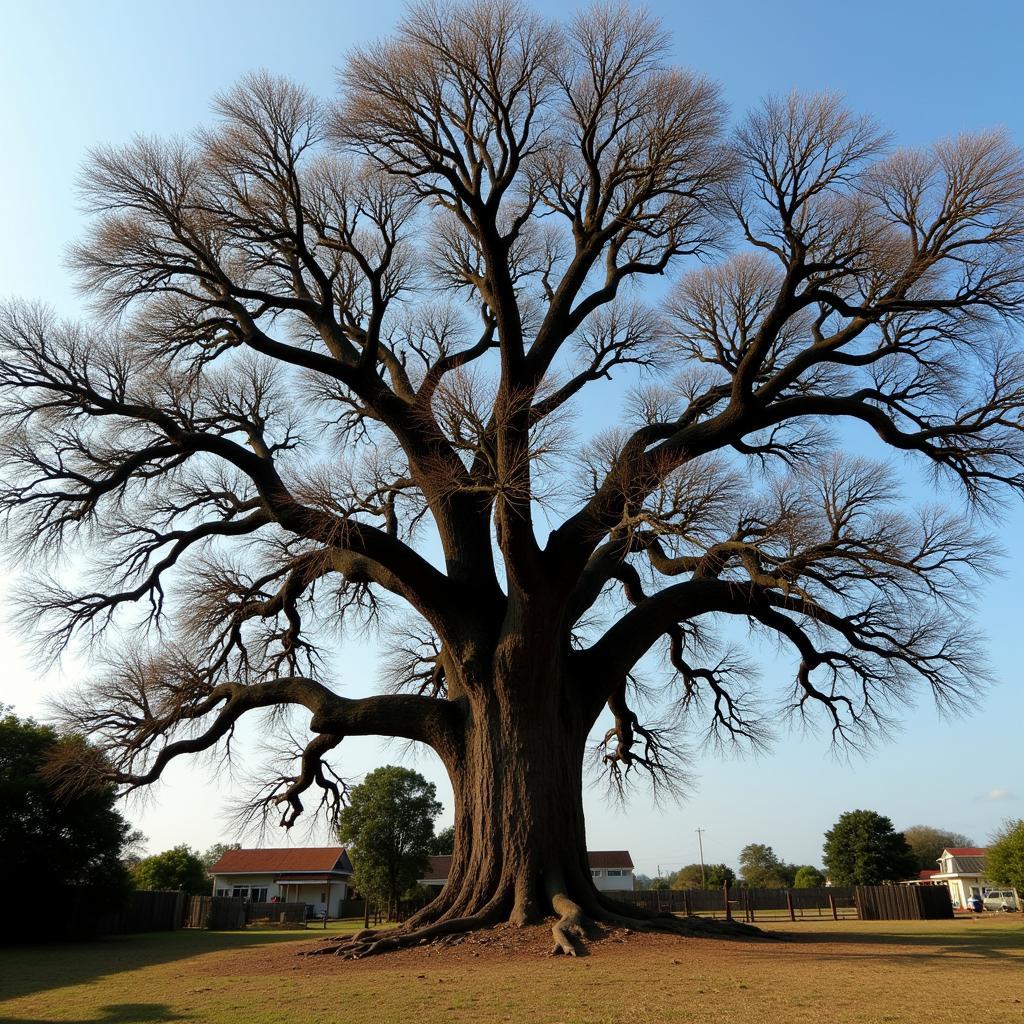 Historic Cotton Tree in Freetown
Historic Cotton Tree in Freetown
In the late 18th century, Freetown, the current capital city of Sierra Leone, was established as a settlement for freed slaves, many of whom had fought for the British during the American Revolutionary War. This influx of returnees from the diaspora, along with the presence of indigenous communities like the Temne and Mende, contributed to the rich cultural melting pot that Sierra Leone is today.
From Beaches to Jungles: Unveiling Sierra Leone’s Natural Wonders
Beyond its history, Sierra Leone is a country brimming with natural beauty. Imagine pristine beaches with powdery white sand meeting turquoise waters, a sight that rivals some of the world’s most famous tropical paradises. Sierra Leone’s coastline stretches for miles, offering secluded coves, excellent surfing waves, and a sense of tranquility that is hard to find elsewhere.
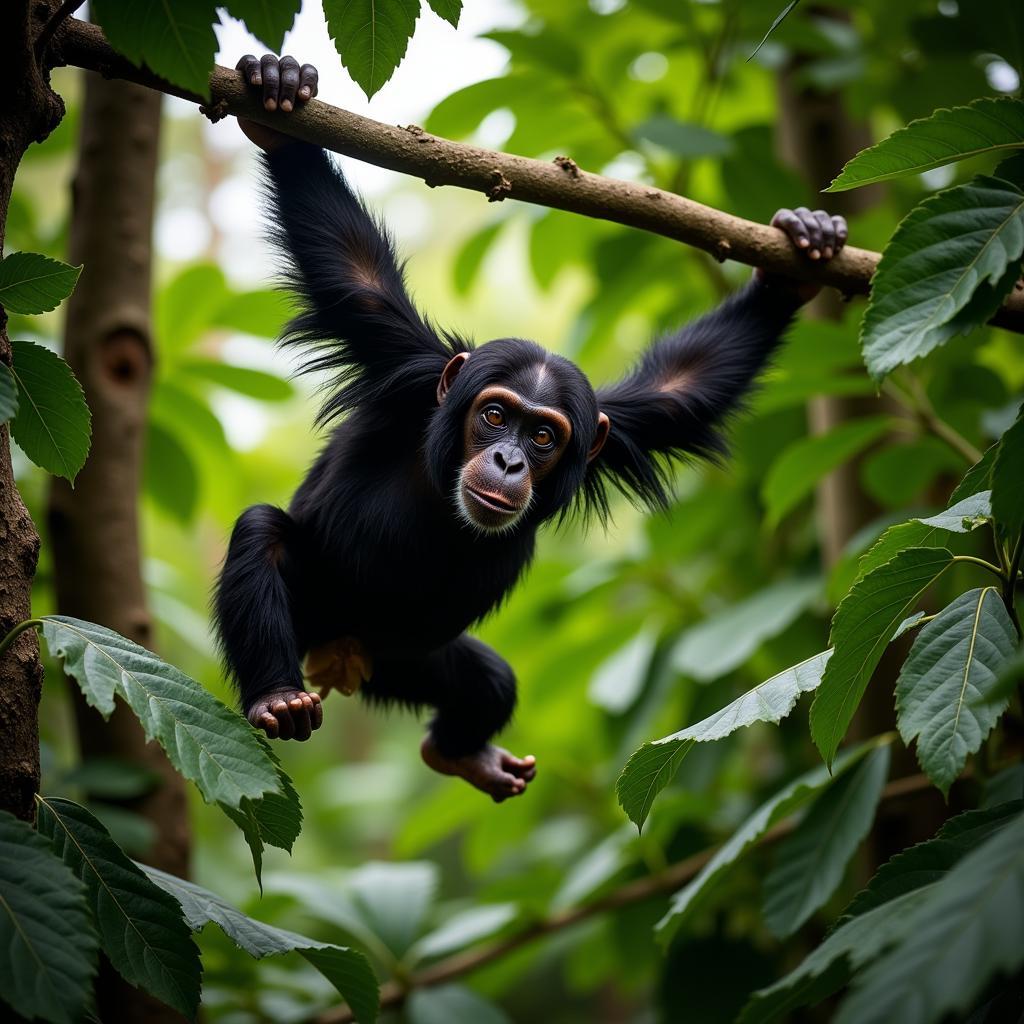 Chimpanzee in Tiwai Island Wildlife Sanctuary
Chimpanzee in Tiwai Island Wildlife Sanctuary
Venturing inland, one encounters a different kind of magic. Lush rainforests teeming with life cover much of the country’s interior. Here, you’ll find endangered species like the elusive pygmy hippopotamus, playful chimpanzees, and an array of colorful birdlife.
A Tapestry of Cultures: The People of Sierra Leone
The true heart of Sierra Leone lies in its people, known for their warmth, resilience, and infectious joy. With over 16 ethnic groups, each with its own distinct language, traditions, and beliefs, Sierra Leone is a melting pot of cultures. Music and dance are integral parts of everyday life, with vibrant rhythms and colorful costumes adding a festive air to even the most ordinary occasions.
Sierra Leoneans are known for their storytelling tradition, passing down history, wisdom, and folklore through generations. This oral tradition is kept alive through captivating tales told around village fires, in bustling marketplaces, and within the walls of family homes.
“Sierra Leoneans have a way of finding joy even in the face of hardship,” says Aminata Koroma, a renowned Sierra Leonean author and cultural anthropologist. “Our spirit is rooted in our community, our music, and our unwavering belief in a brighter tomorrow.”
Tasting Sierra Leone: A Culinary Journey
No exploration of Sierra Leone would be complete without experiencing its diverse cuisine. Rice, a staple food in many West African countries, forms the base of many Sierra Leonean dishes. From hearty stews like Groundnut Stew, made with peanuts, chicken, and leafy greens, to flavorful dishes like Cassava Leaf, cooked with cassava leaves, fish, and a medley of spices, Sierra Leonean cuisine offers a tantalizing blend of flavors.
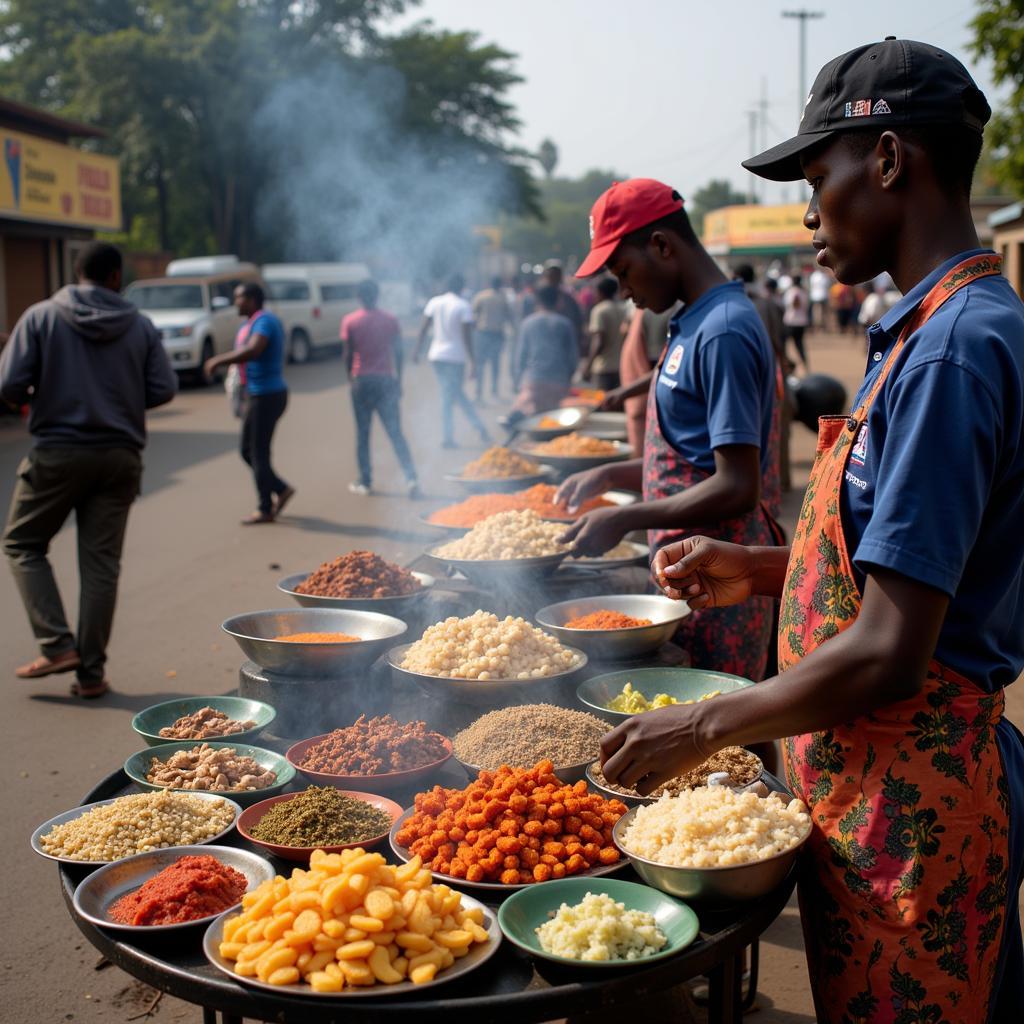 Vendors selling street food in Freetown
Vendors selling street food in Freetown
One of the best ways to experience Sierra Leonean food is on the streets. Street food vendors, known for their culinary creativity, offer a range of affordable and delicious snacks and meals. Be sure to try the Puff-Puff, deep-fried dough balls, or Akara, black-eyed pea fritters, for a true taste of Sierra Leonean street food culture.
Sierra Leone: A Country Looking Forward
Sierra Leone has faced its share of challenges, from the legacy of the slave trade to a brutal civil war and the recent Ebola crisis. Yet, through it all, the people of Sierra Leone have shown remarkable resilience, determination, and an unwavering spirit. Today, Sierra Leone is a nation rebuilding and looking forward, eager to share its unique beauty and culture with the world.
FAQ:
1. What is the best time to visit Sierra Leone?
The dry season, from November to April, is the best time to visit for pleasant weather and optimal beach conditions.
2. Is it safe to travel to Sierra Leone?
Sierra Leone has made significant strides in safety and security since the civil war. However, it’s always advisable to check current travel advisories and exercise caution.
3. What language is spoken in Sierra Leone?
English is the official language, but Krio, a widely spoken creole language, is also commonly used.
4. What currency is used in Sierra Leone?
The Leone (SLL) is the official currency.
Discover More About Africa
- Explore the diverse countries and capitals of the African continent: african continent countries and capitals list
- Learn about the fascinating history and cultures of various African nations: african countries and capitals names
Contact us for any assistance or inquiries:
Phone Number: +255768904061
Email: kaka.mag@gmail.com
Address: Mbarali DC Mawindi, Kangaga, Tanzania
We have a 24/7 customer support team ready to assist you.
